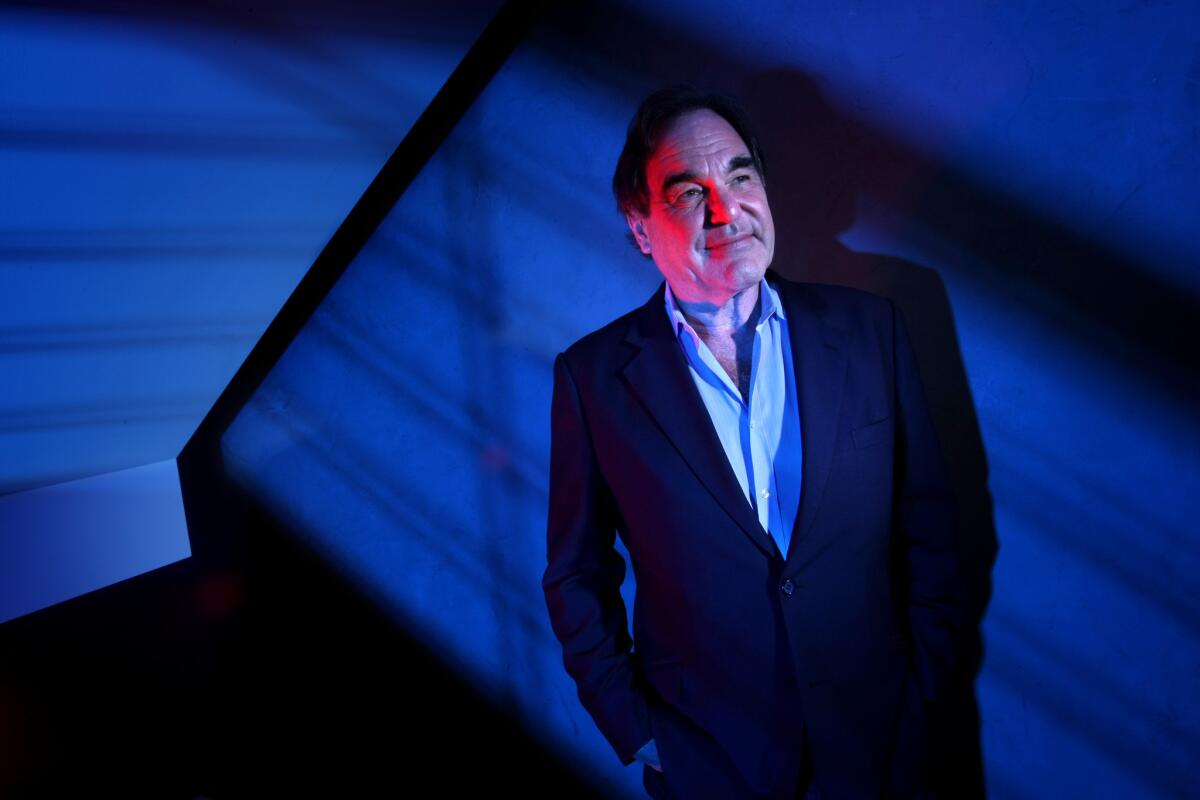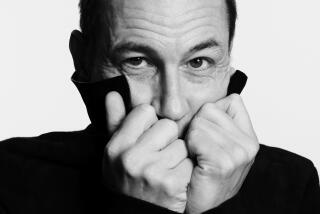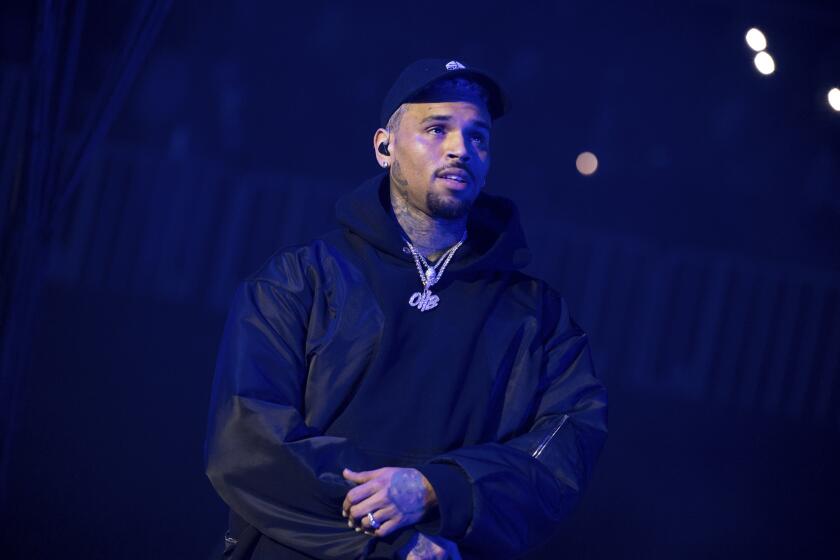Oliver Stone teaches American history

- Share via
Artists and writers have been weighing in on political matters for a long time now. But when a filmmaker as controversial as Oliver Stone announces a 10-part television series about American history, it makes you wonder: Do we really want a history lesson from a guy who thinks LBJ had a hand in killing Kennedy?
Stone laughs a little when asked how his new “The Untold History of the United States” fits into a feature film career that includes projects like “JFK,” which suggested that the Mafia, the CIA and Lyndon Johnson had roles in assassinating the president. “That’s not fair,” Stone says, “because nowhere in the film does it say that; it doesn’t actually indicate who … .” He trails off a bit but comes back saying that Johnson clearly “knew something” and participated in the official cover-up of the Warren Commission.
A conversation with Oliver Stone, 66, is a bit like the editing on his early films: a mix of choppy, passionate, intelligent and indecipherable.
PHOTOS: Celebrities by the Times
So it’s striking that “Untold History,” which begins a 10-week run on a revitalized Showtime on Monday, is reasonably mainstream and persuasive. Stone emphasizes how it’s not the same kind of animal as “JFK,” “Nixon” or “W.” — films that aimed to present counter-myths or to get into the heads of their protagonists. These films, along with “Born on the 4th of July,” about a Vietnam veteran turned antiwar protester, have had their details or points of view challenged over the years.
But “Untold History,” which focuses primarily on post-World War II events, has not only been repeatedly fact-checked — including a layer of confirmation by Showtime — it’s co-written with an American University historian.
And although much of the film’s material may be familiar, the way Stone and company present the context — the emphasis on Britain’s struggle to sustain its empire during World War II, for instance — feels unorthodox. In his own education at good private schools and as an on-again, off-again Yale student, Stone says, he got little sense of the big picture.
PHOTOS: When directors change up their genre
“They never mentioned World War II in the same context as British [imperialism],” says the director, whose voice-over narration often accompanies old footage. “They didn’t say it was a three-empire monte game, with Britain, Russia and the U.S. ... So this is the beginning of a huge mushroom here. Once you get into that mushroom, it’s huge.”
The first spores of the mushroom were planted in 1996, when Peter Kuznick, whose work concentrates on the Cold War and nuclear weaponry, began teaching an American University course called “Oliver Stone’s America.” Stone came in to speak to the class, and at a dinner afterward, the historian told the director about his idea for a film, looking at Franklin Delano Roosevelt’s wartime vice president, Henry Wallace, and how the road to Hiroshima might have been different if he’d succeeded FDR instead of Harry S. Truman.
The two became friends, and Kuznick sent Stone a screenplay. (The director now pronounces it “a 200-page turkey.”) But years later, Stone came up with the idea to develop the idea into a one-hour documentary. The atomic bomb, the filmmaker says, was “the beginning of the origin myth of my time — I was born in 1946.”
Stone — who begins the documentary discussing how his travels, including his service as an infantryman in Vietnam, showed him how shallow his early education had been — was fascinated by the history he dug into, and the project expanded. “This thing grew,” says Stone at the Showtime offices in Westwood, “into the monster you see before you.”
It grew, in fact, so large that Stone and Kuznick had to jettison two almost-finished sections on World War I and the Great Depression to keep the film even vaguely within budget. As it is, Stone calls his work on the project consuming — “for over 41/2 years, every chance I had, I would be in that editing room” — as well as “pro bono.”
Even with the project retooled, Wallace — an eccentric Iowan, enormously popular in the ‘30s, later forced off the 1944 Democratic ticket by the party’s establishment and often accused of being too friendly with the Soviets — has an outsized place in the first three episodes of “Untold History.”
PHOTOS: Celebrities by the Times
Says Kuznick, 64, whose nasal delivery contrasts with Stone’s prep-school baritone: “We’re arguing, basically, that had Henry Wallace become president, it might have been possible to avoid not only the atomic bombing and the nuclear arms race but also the Cold War. And the world might have been — you don’t know how it would have turned out — an entirely different place. We spend so much of our global wealth on killing each other, and trying to think of better ways to kill each other.”
The first episode of “Untold History,” on World War II, begins with a bang, quite literally. After a brief introduction by Stone, in which he talks about his wish to give his children a sense of history’s complexity and to help them transcend “the tyranny of now,” we’re in the New Mexico desert. After a countdown, the atomic bomb developed by Robert Oppenheimer at Los Alamos detonates, and we see its fiery blast — hotter than the sun — fill up the sky.
The program then backtracks to the roots of the war. This sets the pattern for the series — old footage, especially newsreels and old movies used for context. Stone narrates throughout, although voices of most historical figures seem to be re-created by speakers with exaggerated accents.
Stalin, of course, is a major character in the project as well, and Stone’s narration emphasizes both the atrocities of the Soviet regime as well as the enormous role the autocrat and his armies played in defeating Hitler. The show attends, for example, to the siege of Stalingrad and the millions of Soviets who died in the war. (By comparison, he says, America’s Greatest Generation is, as he calls it, “a Madison Avenue mythology.” U.S. military and civilian deaths in the war are measured at around 420,000; the Soviets lost more than 20 million and the program uses the figure 27 million.)
The second installment looks at “Roosevelt, Truman & Wallace,” and by the 10th week, we arrive at an Obama White House that leaves the filmmakers substantially disappointed. The book based on the project, written by Stone and Kuznick, has already drawn attention for its treatment of the current president: The authors say he has been far too eager to extend disastrous national-security policies of the George W. Bush administration.
Stone, of course, is a man of the left who even many on his side consider a conspiracy theorist; his admiration for Venezuela’s Hugo Chavez has called his credibility into question. With his involvement and the documentary’s orientation, you can almost hear the right salivating to tear into it.
The neoconservative author Ron Radosh, for instance, has been going after “Untold History” for almost a year now, denouncing Kuznick as “yet another of the politically correct tenured radicals; a man of far left sympathies who considers Oliver Stone a man of great insight and profound truths.”
PHOTOS: When directors change up their genre
Disjointed though some of his conversation is, Stone comes across as more rumpled preppy — one corner of his collar sticking out of his lapel, hair mussed — than seditious bomb-thrower.
Exhausted as he may be, Stone calls this project “the most significant thing I’ve achieved” and is proud that American television has taken it on. “Whether I go to jail or into exile — it doesn’t matter. I believe the truth has a mind of its own — and will get out there.”
Stone talks like an artist on a mission — Kuznick is more a social crusader, fighting against the way a misunderstanding of the past has turned our history into myth.
“I’ve been trying to change this country since the time I was a child; I joined the NAACP when I was 12,” he says. “I see us as a species in a dangerous period. We’ve got the worldview of cave-dwellers, of Neanderthals and troglodytes, and the weaponry of an advanced civilization that could commit suicide.”
Part of what will make us avoid repeating myths of the past, he says, is if the film sparks a national conversation.
When asked about his own hopes for the project, the director of “Platoon,” “Wall Street” and “Savages” collapses onto the table as if overwhelmed. “It’s too much for me — it’s too much,” he says with a laugh. “A national conversation — that sounds great. But it’s exhausting — it’ll kill us! I’ll never get back to work!”
PHOTOS, VIDEOS & MORE:
Timeline: Emmy winners through the years
Celebrity meltdowns
VIDEO: Watch the latest fall TV trailers here
More to Read
The biggest entertainment stories
Get our big stories about Hollywood, film, television, music, arts, culture and more right in your inbox as soon as they publish.
You may occasionally receive promotional content from the Los Angeles Times.










